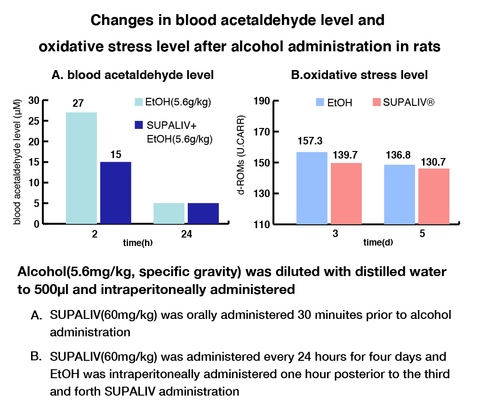What is the toxic substance acetaldehyde?
February 15, 2021
What is the toxic substance acetaldehyde?
It is well known that when alcohol enters the body, it is metabolized by the liver to produce acetaldehyde.

It is also produced in large quantities as a raw material for the manufacture of acetic acid, and is indispensable in the production of solvents for paints, adhesives for plywood, antiseptics, and antifungals.

Acetaldehyde has many industrial benefits, but on the other hand, it is also toxic. If the concentration of acetaldehyde increases in the body after consuming a large amount of alcohol, it not only causes a hangover, but also decreases the function of the liver and causes inflammation.
It is also well known that acetaldehyde, which is volatilized from adhesives and antifungal agents used in building materials, can cause sick building syndrome.
One of the most serious problems is that it is carcinogenic. This has been confirmed in both animal experiments and long-term studies on humans. The types of cancer that acetaldehyde can cause include esophageal cancer, stomach cancer, breast cancer, and colon cancer, to name a few.
Large-scale studies have also shown that it can cause neurological disorders such as Alzheimer’s disease. Because acetaldehyde is chemically reactive, it can damage white blood cells and other cells, thus lowering the immune system.
In the winter, I’ve heard people say that they catch a cold after drinking a lot of alcohol.
Looking at the data from various studies, there is no doubt that acetaldehyde damages white blood cells and other cells. For example, when alcohol is given to mice in large amounts, the oxidation level of the cells increases very much.

Increased oxidation = rusty body = faster aging.
This is probably the reason why alcoholic people look older than they really are.
Alcohol tolerance varies greatly from person to person, but drinking large amounts of alcohol over a long period of time is not good for the body. It speeds up the aging process and shortens your life span.
By the way, have you ever seen a commercial about turmeric and taken a turmeric supplement or drink before or after a party, thinking that it is good for your liver?
This is actually a misconception.
Animal studies have shown that turmeric does indeed slightly increase the metabolism of alcohol. However, the speed of metabolism quickly returns to normal. With this, it is not surprising that it cannot be used for the treatment of acute alcoholism. In short, please know that depending on how you look at the data, it’s only I guess you could say it’s effective.
Rather, there is one serious problem with turmeric. Turmeric is actually high in iron. People who suffer from liver dysfunction, hepatitis or liver cancer are less likely to respond to drug treatment if they take too much iron.
Therefore, if you take too much turmeric and increase the amount of iron in your body, it is very possible that your treatment will not work and your cancer will grow bigger and bigger. If you have a bad liver, it is important to avoid turmeric products with high iron content as much as possible.

